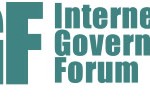
With more than 3,300 participants choosing amongst more than 100 events, the Internet Governance Forum has gathered a diverse range of ideas and opinions on the issues that impact Internet users.
The various IGF sessions have hit upon a variety of subjects, including inequalities, youth, fragmentation of Internet through national policies, mobile technologies, broadband access, and privacy and surveillance.
Protection of privacy remains a key concern for most Internet users, and the IGF held several events considering privacy and the many issues that may impact Internet users if privacy rights are invaded or removed, such as freedoms of expression, identity theft, digital surveillance and much more.
As more people use mobile phones to access information and services, privacy and security has become increasingly challenging. A key ingredient for strengthening trust in a mobile-connected world is to ensure secure and trusted identities online whether in retail, healthcare, government, banking or other sectors.
At another workshop entitled, “Privacy, Surveillance and the Cloud: One year later,” participants examined how policy makers, regulators, businesses and users have responded to potential government access to user data in the cloud. Contemplating policy implications, private sector efforts to address concerns and what has worked and what hasn’t, participants tried to address how measures have affected cloud adoption and explored potential solutions.
More than 4 billion people still do not have access to the Internet, but many efforts are deployed to provide access to more people. Participants at a workshop entitled, “Technologies and Policies to the Connect the next Five Billion,” covered some promising ways to increase Internet access, such as installing wireless platforms in rural markets and creating demand for broadband.
Participants took up regional issues on how the Internet can have a positive impact on the development of societies at a session entitled, “Internet as an engine of growth and development.” For more than a decade, information and communication technologies (ICT) have been called a key driver to socio-economic transformation and play a catalytic role in attaining the Millennium Development Goals.
Workshop participants recommended that governments adopt and implement policies enabling affordable Internet access and services. The panel also emphasized that information sharing is important and greater access to information should be encouraged. Another point supported by participants was that governments and the private sector should increase investment in ICT infrastructure.
The workshop, “Clouds and mobile internet: benefiting developing countries,” highlighted the various opportunities that Internet and specifically mobile Internet and cloud computing may present developing countries. Panellists noted that more than 50 per cent of people in developing countries have access to mobile phones, and thus potentially to the Internet through their mobiles. Among other ways the development of Internet infrastructure and the promotion of the mobile Internet could improve people’s lives by providing high bit rate services such as high resolution TV, promoting the emergence of start-up companies and digital libraries, developing microfinance systems and creating personalized health care.
For more information on the IGF, visit: www.intgovforum.org

